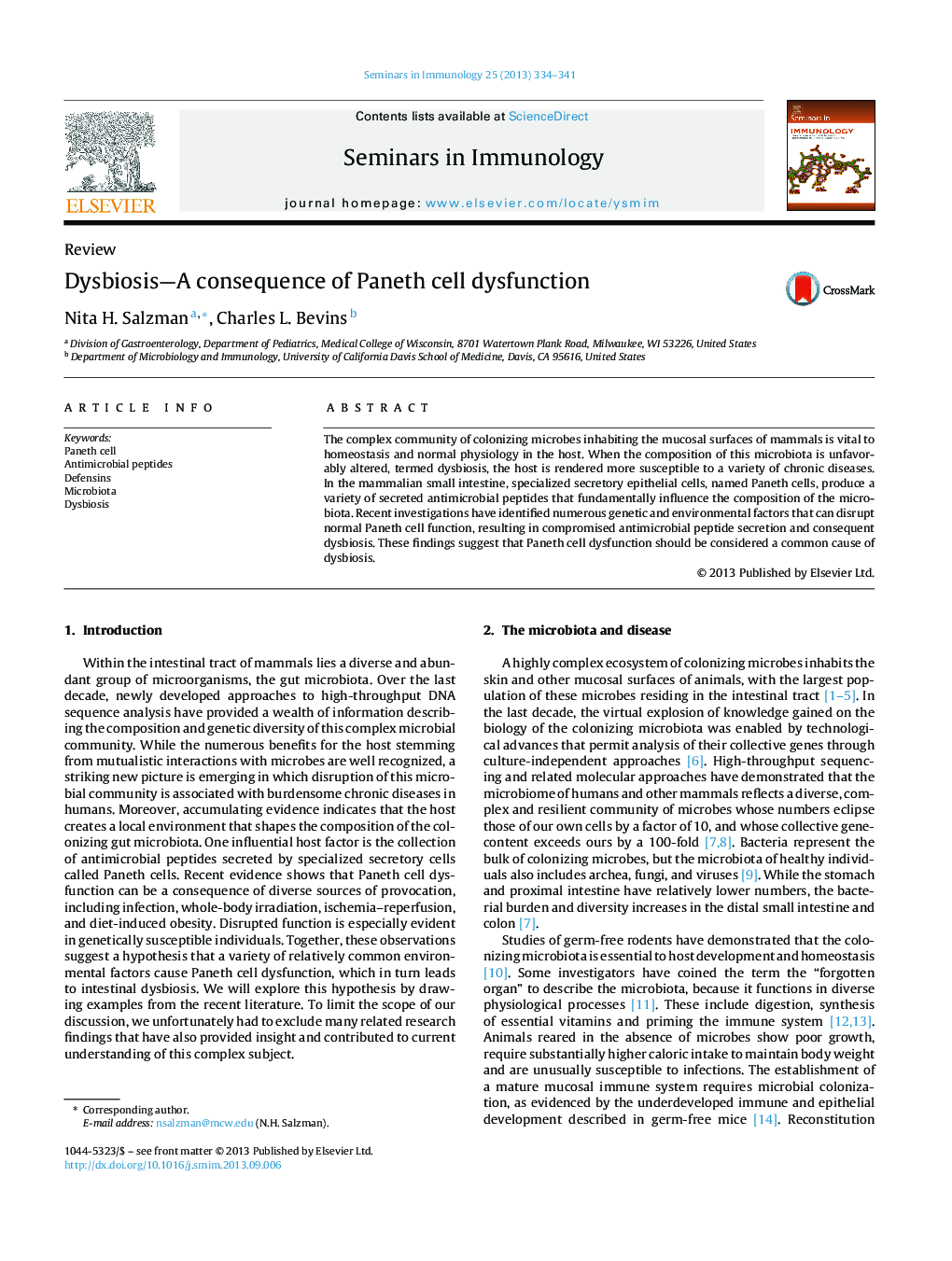| Article ID | Journal | Published Year | Pages | File Type |
|---|---|---|---|---|
| 3391492 | Seminars in Immunology | 2013 | 8 Pages |
•Paneth cells appear at a critical GI mucosal interface between host and environment.•Paneth cells secrete diverse antimicrobial peptides, shaping microbiota composition.•Paneth cell function can be disrupted by numerous genetic and environmental factors.•Dysfunction of Paneth cells compromises antimicrobial secretion leading to dysbiosis.
The complex community of colonizing microbes inhabiting the mucosal surfaces of mammals is vital to homeostasis and normal physiology in the host. When the composition of this microbiota is unfavorably altered, termed dysbiosis, the host is rendered more susceptible to a variety of chronic diseases. In the mammalian small intestine, specialized secretory epithelial cells, named Paneth cells, produce a variety of secreted antimicrobial peptides that fundamentally influence the composition of the microbiota. Recent investigations have identified numerous genetic and environmental factors that can disrupt normal Paneth cell function, resulting in compromised antimicrobial peptide secretion and consequent dysbiosis. These findings suggest that Paneth cell dysfunction should be considered a common cause of dysbiosis.
